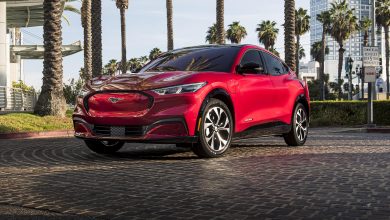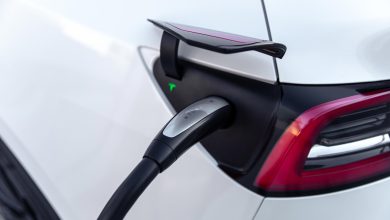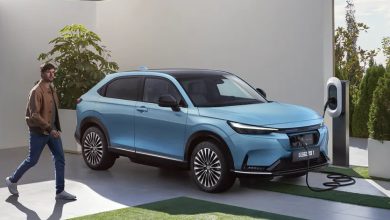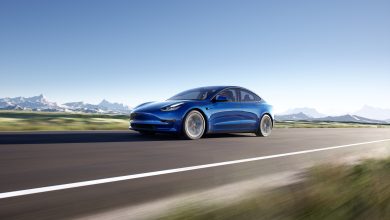Volkswagen To Build $2B EV Plant In South Carolina
EV NewsThe Company Is Under Fire Over Xinjiang Plant
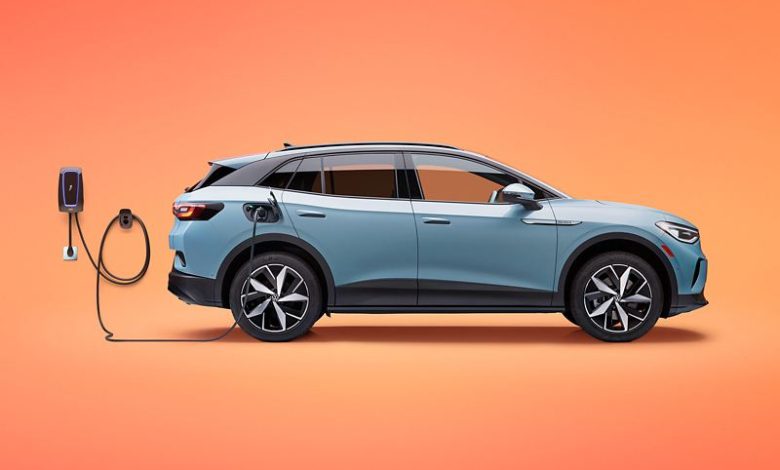
Volkswagen is planning to build two factories in North America as it continues to push into the electric vehicle market. The German automaker said the United States EV market became more tempting after President Joe Biden approved the $400B clean energy incentive.
On February 3, 2023, Volkswagen said it will build an assembly plant in Columbia, South Carolina. The plant will handle the production of electric models for the rejuvenated Scout brand. The German automaker is searching frantically for a second site in North America where it will build its battery factory.
The South Carolina plant will gulp $2B and is expected to create 4,000 jobs. Arno Antlitz, Volkswagen’s finance chief said the company sees a huge potential in North America.
Part of the requirement for EV makers to get a share of the $400bn Inflation Reduction Act was for the automakers to produce or assemble the EVs in North America. Consequently, international automakers like Toyota, Honda, and Hyundai have all signed deals to manufacture EVs or batteries in the region.
“We would have done that anyway,” said Antlitz, insinuating that building a plant in the U.S. was inevitable regardless of the tax credit. “The whole market in the U.S. is transforming to electric, and we have the technology and the will to transform ourselves.”
Volkswagen plans to start building the new Scout models in 2026. Historically, Volkswagen has struggled in the North American market. However, the company believes that EVs give them the window to break into the market.
Volkswagen predicts a global spike in EV sales
Volkswagen is the fourth-largest seller of EVs in the United State at the moment. In a separate observation on Friday, the German automaker said it expects its global sales to remain in a steep upward trajectory this year, thanks to the easing supply chain shortages.
The German automaker reported a significant increase in its battery electric vehicle (BEV) deliveries. However, the total number of vehicles the automaker delivered fell slightly by 7% due to a shortage of semiconductors, supply stoppages in China, and logistic chain disruptions.
In total, the company delivered 572,100 BEVs to customers. The figure was 26% higher than that of the previous year. According to the company, it highlights the popularity of Volkswagen’s BEV model range.
“Our performance last year demonstrates the improved resilience of the Volkswagen Group amid a challenging global backdrop,” Antlitz said. “Despite significant supply chain challenges leading to a decline in overall delivery numbers, we delivered 572,100 all-electric vehicles and simultaneously further increased operating profits.”
In its forecast, the automaker projects that sales will rise to 9.5 million from the 8.3 million recorded in 2022. Also, the automaker predicts that revenues will rise by as much as 15% which will push up the value of shares in the company by 7%.
“We expect the supply chain bottlenecks to gradually ease in the current year, allowing us to service the high order backlog,” said Antlitz.
However, the easing supply chain problems will likely also lead to increased competition, including price cuts as automakers face a new problem in the form of dwindling demands and higher production. In January 2023, Tesla set off an EV price war after slashing the price of some of its trims.
“The competition will increase, and in order to prepare for that, we have to maintain pricing discipline,” Antlitz said. “[We] cannot rule out the possibility of a slowdown in the economy and weakening in demand, and are preparing for this accordingly.”
Volkswagen under fire over head of its Chinese business comment
Campaigners are calling out the head of Volkswagen’s Chinese business, Ralf Brandstaetter after he said he did not see any sign of forced labor during a visit to the automaker’s Xinjiang plant.
Eventually, the works council, which is represented on Volkswagen’s supervisory board released a statement saying the company must clearly state the factory’s value for the business and take a decision on human rights violations in China.
An international group of lawmakers, activists and the head of sustainability and corporate governance at top-20 Volkswagen investor Deka Investment countered Brandstaetter’s statement, saying it was almost impossible to verify labor standards in the region.
“Regardless of how much Mr. Brandstaetter makes an effort, Volkswagen cannot be certain. That leads not only to reputational risk but also legal issues, for example, with supply chain laws,” Deka’s Ingo Speich said.
Volkswagen depends on its profit from China to finance EV research and development in Germany. However, it is facing tough competition from domestic automakers and has to fight to maintain a large share of the market.
In January, Brandstaetter said the company needs to act from “a position of strength” in China and work hard to stay strong in the market while ramping up sales in other markets. Brandstaetter toured the facility the German automaker jointly owns with SAIC from February 16 to 17 in the company of Volkswagen’s compliance and external relations chiefs in China.
Right groups keep a record of human rights abuses in Xinjiang, which includes mass forced labor in detention camps. The United Nations said the action can constitute crimes against humanity. China continues to deny any abuses in Xinjiang.
“I can talk to people and draw conclusions,” Brandstaetter said. “I can try and verify the facts [from joint venture partner SAIC], and that’s what I did. But I didn’t find any contradictions.”

